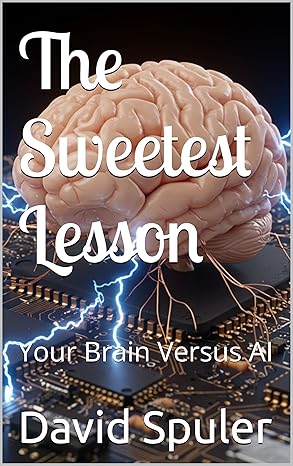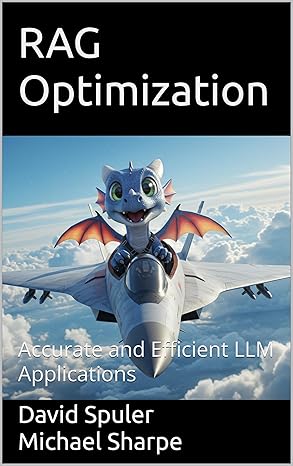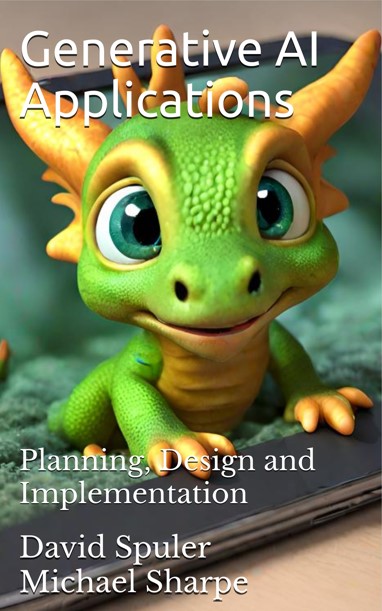Aussie AI
Partitioning
-
Last Updated 17 November, 2025
-
by David Spuler, Ph.D.
Partitioning is a model inference optimization technique that involves organizing data in memory, especially ordering of vectors and tensors. There can be multiple goals to achieve with in-memory partitioning:
- Faster memory access. This can be improved via use of contiguous memory or retaining data in memory longer, rather than swapping in and out.
- Pipelining operations to GPUs. Keeping the GPU busy by handling how the data is organized before being sent to the GPU.
- Parallelization of operations to multiple GPUs.
Research Papers on Partitioning
GPU partitioning is a type of software acceleration to make hardware acceleration more effective. Partitioning data optimally can optimize the throughput and efficiency when using multiple GPUs.
- Jaskirat Singh, Bram Adams, Ahmed E. Hassan, 25 Mar 2024, On the Impact of Black-box Deployment Strategies for Edge AI on Latency and Model Performance, https://arxiv.org/abs/2403.17154 (MLOps deployment for quantization, partitioning and early-exit across mobile, edge, and cloud platforms, including running early exit on mobile.)
- Shuming Shi, Enbo Zhao, Deng Cai, Leyang Cui, Xinting Huang, Huayang Li, 16 Jan 2024, Inferflow: an Efficient and Highly Configurable Inference Engine for Large Language Models, https://arxiv.org/abs/2401.08294 Source: https://github.com/inferflow/inferflow
- Andrei Ivanov, Nikoli Dryden, Tal Ben-Nun, Shigang Li, and Torsten Hoefler. Nov 2021, Data movement is all you need: A case study on optimizing transformers, Proceedings of Machine Learning and Systems, 3, 2021. https://arxiv.org/abs/2007.00072 Code: https://github.com/spcl/substation
- Juntao Zhao, Borui Wan, Yanghua Peng, Haibin Lin, Chuan Wu, 2 Mar 2024, LLM-PQ: Serving LLM on Heterogeneous Clusters with Phase-Aware Partition and Adaptive Quantization, https://arxiv.org/abs/2403.01136
- Urvij Saroliya, Eishi Arima, Dai Liu, Martin Schulz, 14 May 2024, Hierarchical Resource Partitioning on Modern GPUs: A Reinforcement Learning Approach, https://arxiv.org/abs/2405.08754
- Eishi Arima, Minjoon Kang, Issa Saba, Josef Weidendorfer, Carsten Trinitis, Martin Schulz, 6 May 2024, Optimizing Hardware Resource Partitioning and Job Allocations on Modern GPUs under Power Caps, https://arxiv.org/abs/2405.03838
- Issa Saba, Eishi Arima, Dai Liu, Martin Schulz, 6 May 2024, Orchestrated Co-scheduling, Resource Partitioning, and Power Capping on CPU-GPU Heterogeneous Systems via Machine Learning, https://arxiv.org/abs/2405.03831
- Houssam-Eddine Zahaf, Ignacio Sanudo Olmedo, Jayati Singh, Nicola Capodieci, Sebastien Faucou, 21 May 2021, Contention-Aware GPU Partitioning and Task-to-Partition Allocation for Real-Time Workloads, https://arxiv.org/abs/2105.10312
- D. F. Bacon, S. L. Graham, and O. J. Sharp. 1994. Compiler transformations for high-performance computing. ACM Computing Surveys 26, 4 (1994), 345–420. https://dl.acm.org/doi/10.1145/197405.197406, PDF: https://people.eecs.berkeley.edu/~fateman/264/papers/bacon.pdf (Paper with extensive coverage of numerous compiler auto-optimizations of program code.)
- V. Vanhoucke, A. Senior, and M. Z. Mao, Improving the speed of neural networks on CPUs, In Proc. Deep Learning and Unsupervised Feature Learning NIPS Workshop, volume 1, page 4, 2011, https://citeseerx.ist.psu.edu/viewdoc/summary?doi=10.1.1.308.2766 (This paper explores some general code optimizations in relation to CPU and GPU execution, including lazy evaluation, loop unrolling, parallel accumulators, and in-memory partitioning of data for hardware acceleration.)
- Isaac Ong, May 16, 2024, Efficient Distributed LLM Inference with Dynamic Partitioning, Masters Thesis, Electrical Engineering and Computer Sciences, University of California, Berkeley, Technical Report No. UCB/EECS-2024-108, http://www2.eecs.berkeley.edu/Pubs/TechRpts/2024/EECS-2024-108.html https://www2.eecs.berkeley.edu/Pubs/TechRpts/2024/EECS-2024-108.pdf
- https://community.juniper.net/blogs/sharada-yeluri/2024/02/20/llm-inference-hw-sw-optimizations
- Mingjin Zhang, 2024, High-performance scheduling of deep learning tasks in collaborative edge computing, Ph.D. Thesis, The Hong Kong Polytechnic University, Hung Hom, Kowloon, Hong Kong, https://theses.lib.polyu.edu.hk/bitstream/200/13080/3/7528.pdf (Scheduling of inference and training tasks on edge devices with techniques such as model splitting/partitioning.)
- Yikun Han, Chunjiang Liu, Pengfei Wang, 18 Oct 2023, A Comprehensive Survey on Vector Database: Storage and Retrieval Technique, Challenge, https://arxiv.org/abs/2310.11703
- Zheng Wang, Shu Xian Teo, Jieer Ouyang, Yongjun Xu, Wei Shi, 26 May 2024, M-RAG: Reinforcing Large Language Model Performance through Retrieval-Augmented Generation with Multiple Partitions, https://arxiv.org/abs/2405.16420
- Eric Samikwa, 2024, Resource-Aware Distributed Machine Learning for Artificial Intelligence of Things, Ph.D. thesis, Faculty of Science, University of Bern, Switzerland, https://boristheses.unibe.ch/5378/1/24samikwa_e_1_.pdf https://doi.org/10.48549/5378 (Multi-edge device with early exit, "micro-split" scheduling, split/federated learning, and distributed inference.)
- Y. Song, Y. Meng, B. Chen, S. Chen and Y. Kang, 2024, SALTM: Accelerating Large Transformers in Multi-device System with 2D Model Partitioning Method, Integrated Circuits and Systems, doi: 10.23919/ICS.2024.3458897, https://ieeexplore.ieee.org/abstract/document/10678935 PDF: https://ieeexplore.ieee.org/stamp/stamp.jsp?arnumber=10678935
- Dimitrios Kafetzis, Iordanis Koutsopoulos, Oct 2024, Demo: AnExperimental Platform for AI Model Partitioning on Resource-constrained Devices, https://dl.acm.org/doi/pdf/10.1145/3641512.3690629
- Wenxiang Lin, Xinglin Pan, Shaohuai Shi, Xuan Wang, Xiaowen Chu, 24 Nov 2024, Task Scheduling for Efficient Inference of Large Language Models on Single Moderate GPU Systems, https://arxiv.org/abs/2411.15715
- Jiale Liu, Yifan Zeng, Shaokun Zhang, Chi Zhang, Malte Højmark-Bertelsen, Marie Normann Gadeberg, Huazheng Wang, Qingyun Wu, 6 May 2025, Divide, Optimize, Merge: Fine-Grained LLM Agent Optimization at Scale, https://arxiv.org/abs/2505.03973
- Vikas Natesh, H.T. Kung, 12 Apr 2025, PQS (Prune, Quantize, and Sort): Low-Bitwidth Accumulation of Dot Products in Neural Network Computations, https://arxiv.org/abs/2504.09064 (Split vectors into positive and negatives to avoid overflow in vector dot product accumulators.)
- Lucas Cardoso, Vitor Santos, Jos\'e Ribeiro Filho, Ricardo Prud\^encio, Regiane Kawasaki and Ronnie Alves, 14 Aug 2025, Beyond Random Sampling: Instance Quality-Based Data Partitioning via Item Response Theory, https://arxiv.org/abs/2508.10628
- Michael Grosskopf, Kellin Rumsey, Ayan Biswas, Earl Lawrence, 22 Jul 2025, A Partitioned Sparse Variational Gaussian Process for Fast, Distributed Spatial Modeling, https://arxiv.org/abs/2507.16771
- Lam Ngo, Huong Ha, Jeffrey Chan, Hongyu Zhang, 9 Aug 2025, MOCA-HESP: Meta High-dimensional Bayesian Optimization for Combinatorial and Mixed Spaces via Hyper-ellipsoid Partitioning, https://arxiv.org/abs/2508.06847
- Qize Jiang, Linsey Pang, Alice Gatti, Mahima Aggarwal, Giovanna Vantini, Xiaosong Ma, Weiwei Sun, Sourav Medya, Sanjay Chawla, 11 Aug 2025, RIDGECUT: Learning Graph Partitioning with Rings and Wedges, https://arxiv.org/abs/2505.13986
- Ahmed Shokry and Ayman Khalafallah, 27 Jul 2025, Clustering by Attention: Leveraging Prior Fitted Transformers for Data Partitioning, https://arxiv.org/abs/2507.20369
- Lara Neves, Afonso Louren\c{c}o, Alberto Cano, Goreti Marreiros, 28 Jul 2025, Online hierarchical partitioning of the output space in extreme multi-label data stream, https://arxiv.org/abs/2507.20894
- Yining Huang,Bin Li,Keke Tang,Meilian Chen, 28 Jul 2025, LoRA-PAR: A Flexible Dual-System LoRA Partitioning Approach to Efficient LLM Fine-Tuning, https://arxiv.org/abs/2507.20999
- Ashok S. Kumar, Nancy Nayak, Sheetal Kalyani, Himal A. Suraweera, 26 Jul 2025, DRL-AdaPart: DRL-Driven Adaptive STAR-RIS Partitioning for Fair and Frugal Resource Utilization, https://arxiv.org/abs/2407.06868
- Urban Eriksson, 29 Jul 2025, An Equal-Probability Partition of the Sample Space: A Non-parametric Inference from Finite Samples, https://arxiv.org/abs/2507.21712
- Christopher Godwin Udomboso, Caston Sigauke and Ini Adinya, 2 Aug 2025, Fusion Sampling Validation in Data Partitioning for Machine Learning, https://arxiv.org/abs/2508.01325
- Kun Peng, Cong Cao, Hao Peng, Zhifeng Hao, Lei Jiang, Kongjing Gu, Yanbing Liu and Philip S. Yu, 7 Aug 2025, Dialogues Aspect-based Sentiment Quadruple Extraction via Structural Entropy Minimization Partitioning, https://arxiv.org/abs/2508.05023
- Offa Kingsleigh, Alfred Abercrombie, David Woolstencroft, Beorhtric Meadowcroft, Marcus Irvin, 8 Aug 2025, Architectural Fusion Through Contextual Partitioning in Large Language Models: A Novel Approach to Parameterized Knowledge Integration, https://arxiv.org/abs/2501.12901
- Sowmini Devi Veeramachaneni, Ramamurthy Garimella, 18 Aug 2025, Constrained Centroid Clustering: A Novel Approach for Compact and Structured Partitioning, https://arxiv.org/abs/2508.12758
- Michael E. Sander, Vincent Roulet, Tianlin Liu, Mathieu Blondel, 19 Aug 2025, Joint Learning of Energy-based Models and their Partition Function, https://arxiv.org/abs/2501.18528
- Sami Alabed, Dominik Grewe, Norman Alexander Rink, Timur Sitdikov, Agnieszka Swietlik, Dimitrios Vytiniotis, Daniel Belov, 20 Aug 2025, TOAST: Fast and scalable auto-partitioning based on principled static analysis, https://arxiv.org/abs/2508.15010
- Aparajithan Venkateswaran and Anirudh Sankar and Arun G. Chandrasekhar and Tyler H. McCormick, 19 Aug 2025, Robustly estimating heterogeneity in factorial data using Rashomon Partitions, https://arxiv.org/abs/2404.02141
- Manar D. Samad, Kazi Fuad B. Akhter, Shourav B. Rabbani, Ibna Kowsar, 4 Sep 2025, Imputation-free Learning of Tabular Data with Missing Values using Incremental Feature Partitions in Transformer, https://arxiv.org/abs/2504.14610
- Weilin Cai, Le Qin, Shwai He, Junwei Cui, Ang Li, Jiayi Huang, 25 Aug 2025, DualSparse-MoE: Coordinating Tensor/Neuron-Level Sparsity with Expert Partition and Reconstruction, https://arxiv.org/abs/2508.18376
- Junkyum Kim, Divya Mahajan, 25 Aug 2025, VectorLiteRAG: Latency-Aware and Fine-Grained Resource Partitioning for Efficient RAG, https://arxiv.org/abs/2504.08930
- Meng Qin, Weihua Li, Jinqiang Cui, Sen Pei, 27 Aug 2025, InfraredGP: Efficient Graph Partitioning via Spectral Graph Neural Networks with Negative Corrections, https://arxiv.org/abs/2508.19737
- Euntae Choi, Sumin Song, Woosang Lim, Sungjoo Yoo, 1 Sep 2025, Rotate, Clip, and Partition: Towards W2A4KV4 Quantization by Integrating Rotation and Learnable Non-uniform Quantizer, https://arxiv.org/abs/2502.15779
- Bal\'azs Csan\'ad Cs\'aji, L\'aszl\'o Gy\"orfi, Ambrus Tam\'as, Harro Walk, 5 Sep 2025, On Rate-Optimal Partitioning Classification from Observable and from Privatised Data, https://arxiv.org/abs/2312.14889
- Rodrigue Govan (ISEA), Romane Scherrer (ISEA), Philippe Fournier-Viger, Nazha Selmaoui-Folcher (ISEA), 15 Sep 2025, SpaPool: Soft Partition Assignment Pooling for__Graph Neural Networks, https://arxiv.org/abs/2509.11675
- Yan Shuo Tan, Jason M. Klusowski, Krishnakumar Balasubramanian, 10 Sep 2025, Statistical-Computational Trade-offs for Recursive Adaptive Partitioning Estimators, https://arxiv.org/abs/2411.04394
- Hengyi Zhu, Grace Li Zhang, Shaoyi Huang, 1 Oct 2025, PEL-NAS: Search Space Partitioned Architecture Prompt Co-Evolutionary LLM-driven Hardware-Aware Neural Architecture Search, https://arxiv.org/abs/2510.01472
- Xin Wang, Carlos Oliver, 2 Oct 2025, BioBlobs: Differentiable Graph Partitioning for Protein Representation Learning, https://arxiv.org/abs/2510.01632
- Atticus McWhorter and Daryl DeFord, 20 Oct 2025, The Marked Edge Walk: A Novel MCMC Algorithm for Sampling of Graph Partitions, https://arxiv.org/abs/2510.17714
- Ren Yin, Takashi Ishida, Masashi Sugiyama, 26 Oct 2025, Scalable Oversight via Partitioned Human Supervision, https://arxiv.org/abs/2510.22500
- Yingying Li, Mingxuan Xie, Hailong You, Yongqiang Yao, Hongwei Liu, 26 Sep 2025, A Multi-Level Framework for Multi-Objective Hypergraph Partitioning: Combining Minimum Spanning Tree and Proximal Gradient, https://arxiv.org/abs/2509.22294
- Ole-Christian Galbo Engstr{\o}m and Martin Holm Jensen, 26 Sep 2025, Fast Partition-Based Cross-Validation With Centering and Scaling for $\mathbf{X}^\mathbf{T}\mathbf{X}$ and $\mathbf{X}^\mathbf{T}\mathbf{Y}$, https://arxiv.org/abs/2401.13185
- Jia Peng Lim, Shawn Tan, Davin Choo, Hady W. Lauw, 28 Sep 2025, A Partition Cover Approach to Tokenization, https://arxiv.org/abs/2501.06246
- Tung L Nguyen, Toby Hocking, 6 Oct 2025, Learning Penalty for Optimal Partitioning via Automatic Feature Extraction, https://arxiv.org/abs/2505.07413
- Justin Deschenaux, Lan Tran, Caglar Gulcehre, 9 Oct 2025, Partition Generative Modeling: Masked Modeling Without Masks, https://arxiv.org/abs/2505.18883
- Tetiana Parshakova, Trevor Hastie, Eric Darve, Stephen Boyd, 23 Oct 2025, Factor Fitting, Rank Allocation, and Partitioning in Multilevel Low Rank Matrices, https://arxiv.org/abs/2310.19214
- Yuta Shikuri, Hironori Fujisawa, 9 Oct 2025, Surrogate Graph Partitioning for Spatial Prediction, https://arxiv.org/abs/2510.07832
- Zhaojun Nan, Yunchu Han, Sheng Zhou, and Zhisheng Niu, 23 Sep 2025, Robust DNN Partitioning and Resource Allocation Under Uncertain Inference Time, https://arxiv.org/abs/2503.21476
- Pierre Lotte (IRIT, IRIT-SIG, UT, UT3), Andr\'e P\'eninou (IRIT, IRIT-SIG, UT2J), Olivier Teste (IRIT-SIG, IRIT, UT2J, UT), 22 Sep 2025, Anomaly detection by partitioning of multi-variate time series, https://arxiv.org/abs/2509.25215
AI Books from Aussie AI

|
The Sweetest Lesson: Your Brain Versus AI: new book on AI intelligence theory:
Get your copy from Amazon: The Sweetest Lesson |

|
RAG Optimization: Accurate and Efficient LLM Applications:
new book on RAG architectures:
Get your copy from Amazon: RAG Optimization |

|
Generative AI Applications book:
Get your copy from Amazon: Generative AI Applications |

|
Generative AI programming book:
Get your copy from Amazon: Generative AI in C++ |

|
CUDA C++ Optimization book:
Get your copy from Amazon: CUDA C++ Optimization |

|
CUDA C++ Debugging book:
Get your copy from Amazon: CUDA C++ Debugging |
More AI Research
Read more about: